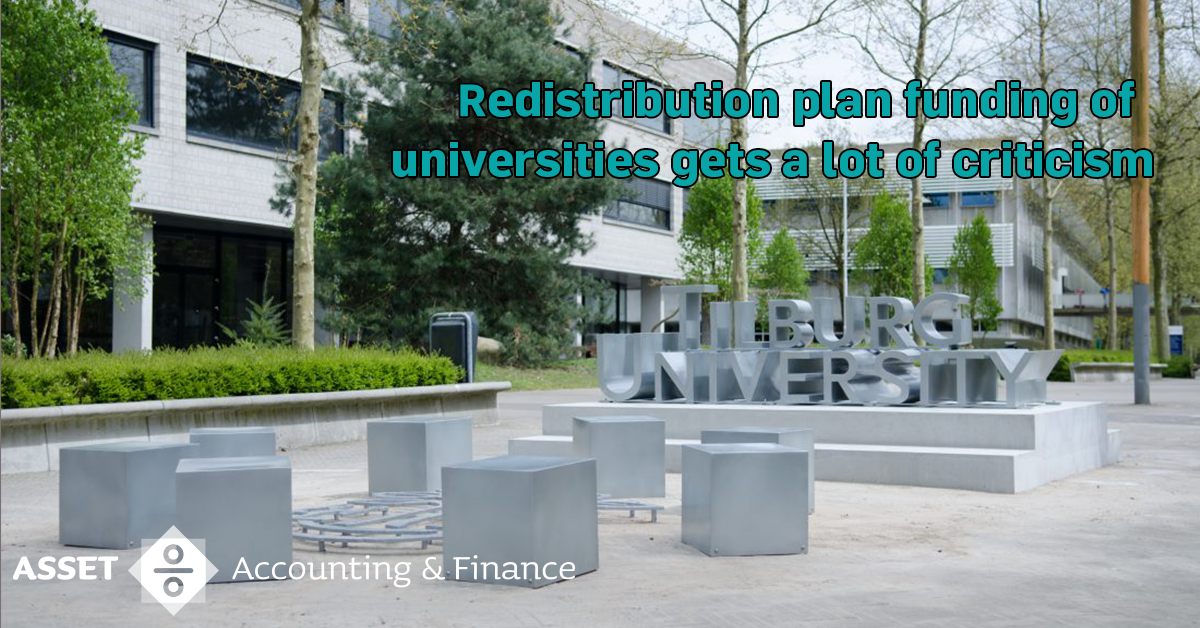Minister Van Engelshoven (D66) wants to overhaul the financing of higher education. Instead of the number of students, the social usefulness of study programs becomes more important in the financing of higher education. Money from the humanities, social sciences and medical faculties will have to be transferred to the science faculty. The variable funding of education based on student numbers will be adjusted and will be replaced by fixed funding for educational institutions. A number of universities are opposed to the plan.
The Education Minister Van Engelshoven wants more money for science and technological studies, because these have grown significantly the last years. There is also a great need on the labor market for technically trained staff. The total budget spent on education and research will not be significantly increased. As a result, this is at the expense of other programs because there will be a redistribution of money between universities and faculties. To make a “soft landing” possible, the minister has reserved an additional 41 million euros.
What are the pros and cons of this plan?
The branch association, VSNU, is critical about the plan and says that the cutbacks in humanities, social sciences and medical studies are shortening the Netherlands as a knowledge country. There is also the fear that faculties will be played against each other, even though they have been collaborating a lot. Scientists from the Young Academy are calling to sign a petition against this plan. They find it harmful for Dutch science if the growth of the science faculties comes at the expense of other disciplines.
Universities that have a science faculty in addition to the humanities, social sciences and/or medical faculties are faced with a devilish dilemma. They do not want the science faculty to lag behind technical universities that make extra investments. On the other hand, they do not want this to be at the expense of other programs where the workload is already very high. A number of universities such as Tilburg University, VU, UvA, Leiden University, University of Groningen and Avans University of Applied Sciences have already opposed against the minister’s plan.
“According to these calculations, Tilburg University receives more than 4 million euros less.”
Currently, there is a shortage of technically trained staff in the Netherlands. This is partly due to the fact that the financing of technical training is lagging behind. Now there is a student stop for a number of technical studies that is in high demand. The technical universities in Eindhoven, Delft and Enschede receive a lot of extra money in the plans of Minister Van Engelshoven. The University of Wageningen also reveives extra money and all other universities have to hand in money according to calculations by the VSNU (University branch association). According to these calculations, Tilburg University receives more than 4 million euros less.
With this plan, the minister wants to limit the “perverse incentive” to recruit as many students as possible and she wants to offer more certainty about the funding by giving a higher fixed amount. She has taken over this proposal from the advisory report of the Van Rijn Committee. In higher education, educational institutions receive variable reimbursements. These fees depend on the number of students, which means that quantity is more important than quality. This will also reduce the incentive to attract many international students at the expense of Dutch taxpayers. Growth of the universities is not a goal itself.
A study will be done about the effectiveness of all courses for the long-term funding. A number of opposition parties in the House of Representatives prefer to wait for the results first before this plan will be implemented. For example, there are currently not enough teachers for Dutch and German and these courses are being put under pressure by this plan. For education reasons, it would be better to first investigate the real costs and then start shifting the money. It would have been better if the 41 million that are now reserved to alleviate the pain for the universities had gone to the four technical universities and then did the research. The technical universities then have extra resources to make investments to solve the pain points and other universities are not faced with a dilemma.

















